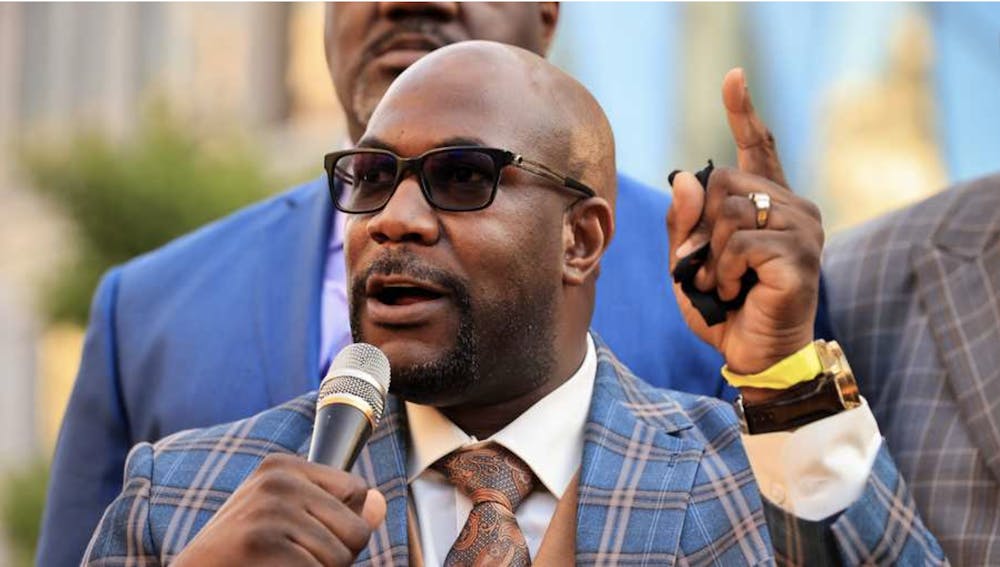'I'm turning my pain into purpose,' George Floyd's brother, Philonise, speaks to students at virtual event

Philonise Floyd speaks during an interview with Roland Martin at Black Lives Matter Plaza on the one-year anniversary of George Floyd's death on May 25, 2021 in Washington, DC
Courtesy Photo | WDSU News
“My brother George Floyd was 46 years young when he was murdered by four Minneapolis Police officers," Philonise Floyd said. "His children are left without a father. Not only did they kill my brother, but having to watch the video of my brother begging for his life and crying for our mama has taken a part of me."
Over 200 students joined a WebEx meeting to hear Philonise speak about the life and death of his older brother Jan. 19.
The Office of Multicultural Academic Student Services hosted the event for Martin Luther King Jr. week to encourage a renewed vision for social justice. Students welcomed Philonise with virtual love and applause.
“I'm here today because I have to be the big brother now," Philonise said. "I have to not only look out for his children but America’s children. This is why I'm seeking justice for people who have been needlessly killed by the justice systems.”
Since his brother's passing, Philonise has met people with similar stories to his - whose loved ones have been killed at the hands of law enforcement officers. He said many of them ask how he gets through the pain to advocate for police reform.
“I always tell them, 'I'll say anything that sparks something inside of you - the flame that I have - is easy,'" Philonise said. "Anybody who's seen that video - a flame has been ignited in them all around the world to be able to fight for social justice.”
Philonise said the best thing to do for those who have lost loved ones to racial injustice is to reach out and let them know they are not alone.
“So many individuals said, 'George is my brother, and I felt the pain, the same pain that you feel.' So, that's the reason I'm turning my pain into purpose," Philonise said. "To me, that's the only way."
Some students asked to hear more about what George was like during his life.
“If he was a card," Philonise said, "he’d be the ace of spades."
George was scared of insects, loved God and prayed a lot, Philonise said. He taught people in the community how to play basketball and football, and even fixed haircuts for kids who were too embarrassed to go to school with bowl cuts.
Philonise described his brother as a motivator.
“One thing about George, whenever you said that you couldn't do anything, he would always tell you, 'You're wrong. You can do it,'" he said. "He was always one of the people that can motivate anybody to do anything.”
Philonise said sharing stories about George is what will keep his legacy alive.
“I love when people are talking about him throughout YouTube, social media, the news and things like that because it helps," he said. "It helps Congress understand that you don't want this tragedy to hit your front door before you want to make a decision."
Philonise has spoken out about a variety of issues including racism, mental health and sex trafficking, but everything Floyd advocates for is centered around love.
“I could’ve stayed hidden under the rock, but I came out fighting," Philonise said. "To me, that was the key, because I didn't want this to happen to any other family around the world.”
The George Floyd Justice in Policing Act still has not been passed, which would ban chokeholds and end qualified immunity for law enforcement.
“We are the people, and we need to fight for what’s right,” Philonise said.
The speaker event was one of five during MLK week. The Tunnel of Oppression, originally scheduled Jan. 20, was postponed to Feb. 17. The last event of the week, a charity basketball game, will take place Jan. 21 at 6 p.m. in the Student Activity Center.






